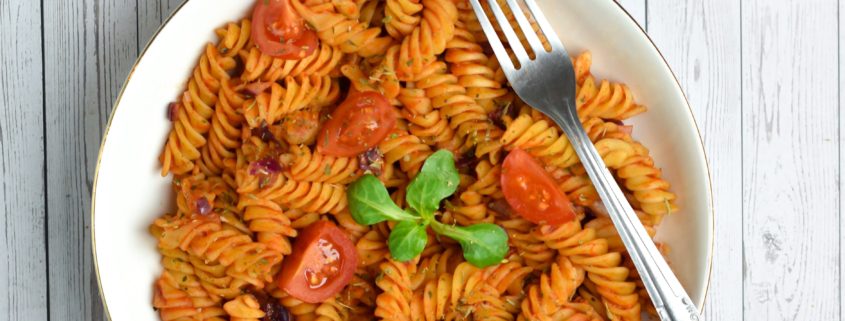Going against the grain – What are you missing out on if you go grain-free in pregnancy?
Grain foods have received a lot of unfavourable attention recently. Many popular diets label them ‘high carb’ or ‘unhealthy’ and promote removing them from our diet. However, there is very little evidence that going grain-free will be anything but troublesome. In fact, it may even be detrimental to our health. Read on to find out why grains are important, particularly when we are pregnant.
What are grain foods?
Food originating from grains include wheat, oats, rice, barley, millet and corn. Grain foods are one of the five main food groups. Foods are grouped together based on the types of nutrients they provide. Eliminating an entire food group can make it very difficult to get all the nutrients we need. For example, two-thirds of our intake of vitamin B1 (Thiamin) comes from this food group!
What nutrients do grains provide?
Grain foods are a good source of carbohydrate – the main energy source for our body and particularly our brain. Without sufficient energy we may experience fatigue, difficulty concentrating, mood swings and dizziness (not ideal when we are growing a baby!) Also, without carbohydrate our body burns fat for energy. This might sound like a good thing but it can result in weight loss and high levels of ketones in the blood. It is unclear whether ketones can affect a growing baby, but some studies seem to suggest they can be harmful.
Grain foods provide fibre. Many pregnant women experience constipation brought on by hormone changes. Eating high fibre carbohydrates can help alleviate this side effect. Wholegrains are the best sources of fibre. Wholegrain foods include multigrain or wholegrain breads and crackers, oats, muesli, quinoa, buckwheat and popcorn (hold the butter). Diets high in wholegrains also tend to have a lower GI which means they get digested more slowly. This helps to keep us feeling full for longer and can sustain our energy levels. It is wise to limit refined or highly processed grains like white bread, sugary breakfast cereals, biscuits and cakes as these contain little fibre and often have lots of added sugar (these are also called ‘ultra-processed foods’).
Grain foods provide lots of different nutrients including vitamins and minerals. Two key nutrients for pregnancy are folate andiodine, of which grain foods are good sources.
Folate or folic acid is a B-vitamin. Sufficient folic acid intake is important to reduce the risk of neural tube defects in a developing baby. For women planning a pregnancy and during the first three months of pregnancy, it is recommended to take a daily folic acid supplement that contains at least 400 micrograms (μg) of folic acid, in addition to eating foods that are rich in folic acid. Foods high in folate or folic acid include cereals, bread, fruits and vegetables.
Pregnant and breastfeeding women have increased iodine requirements. Iodine is important for growth and development, especially of the baby’s brain. As most bread in Australia is made with iodised salt, this is a good reason to keep it in your diet while pregnant. Other food sources of iodine include fish, eggs and dairy foods. Women should still take a supplement containing 150μg of iodine when planning a pregnancy, throughout pregnancy and while breastfeeding.
What are the health benefits of grains?
As well as providing important nutrients, grains are necessary for proper digestion and satisfying hunger and taste. Wholegrains can also help stabilise blood glucose levels and lower cholesterol. Many studies have shown that adequate wholegrain intake can reduce our risk of obesity, diabetes, heart disease and some cancers.
How much do I need to eat each day?
The Australian Dietary Guidelines recommend women who are pregnant eat 8 ½ serves of grains each day.
One serve is equal to:
- one slice of bread,
- ½ cup cooked porridge, pasta, rice, quinoa, polenta or barley,
- 2/3 cup cereal flakes,
- ¼ cup muesli or
- 3-4 crispbreads.
Adequate grain intake might look like:
Breakfast 1 cup porridge (2 serves)
Morning tea yoghurt with ¼ cup muesli (1 serve)
Lunch wholegrain sandwich or wrap (2 serves)
Afternoon tea 3-4 wholegrain crackers with cheese (1 serve)
Dinner 1-1.5 cups rice/pasta/quinoa (2-3 serves)
Eating moderate amounts of nutritious carbohydrates, rather than eliminating them altogether, will help make sure you and your baby are as healthy as possible.
If you would like help to make sure you are getting all the vitamins and minerals you need during pregnancy, here at Lifestyle Maternity, specialist women’s health dietitians are available to support you. If you would like further information book an appointment with a Lifestyle Maternity Dietitian now.
IMAGE CREDIT: Aleksandra Tanasiienko/ Unsplash
IMAGE DESCRIPTION: Spiral pasta in a tomato sauce in a white bowl, with a fork resting on the pasta. Cherry tomatoes and garlic bread pieces are around the bowl.




 Find us on
Find us on
